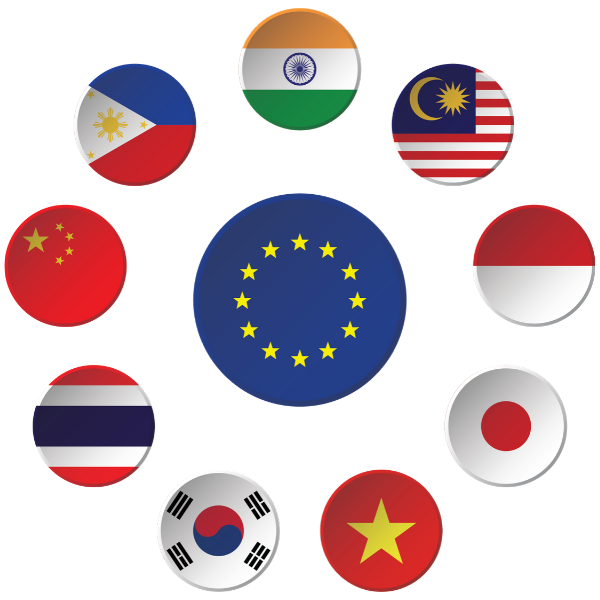Seminar on import of plant and plant products into Thailand
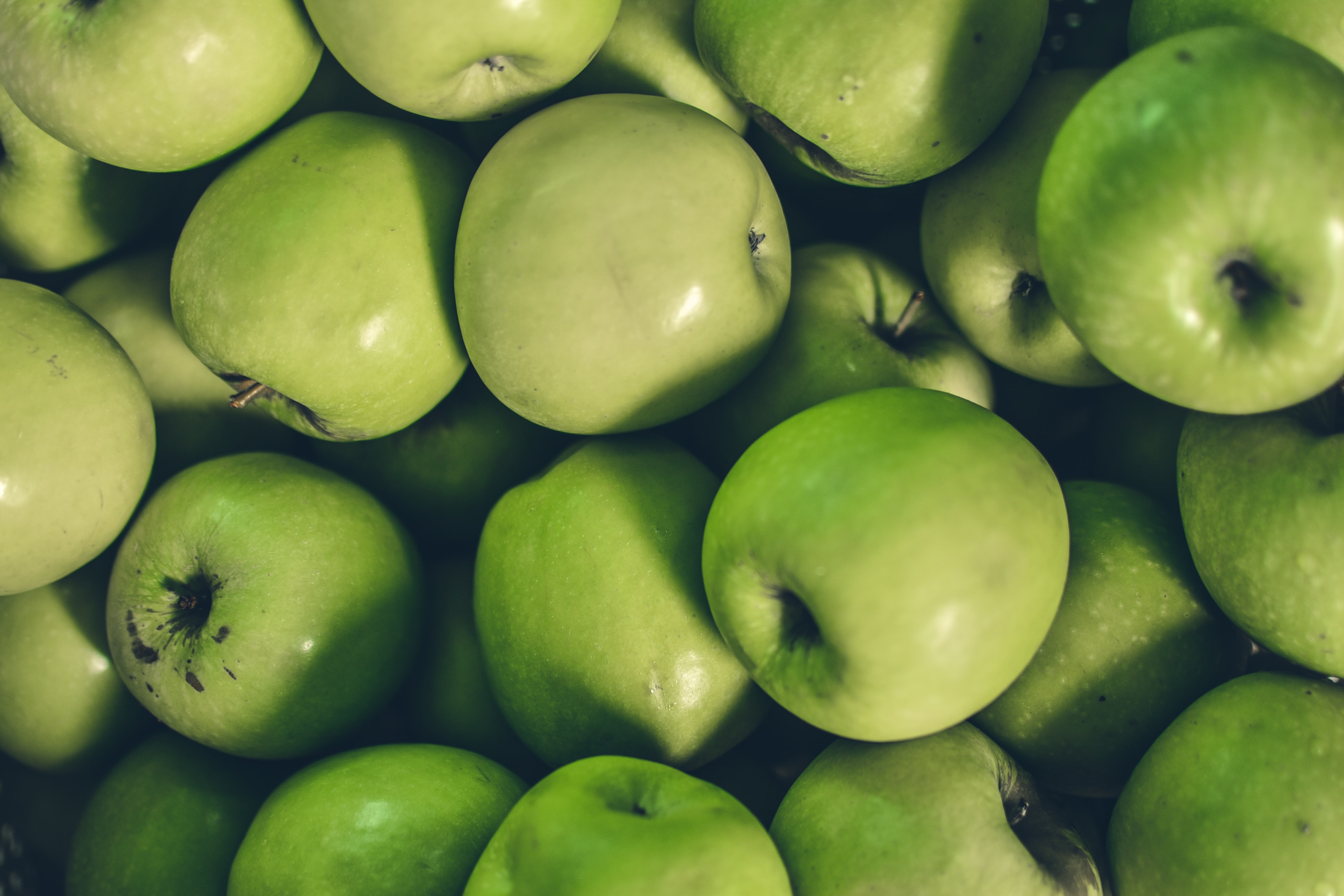
Description
Exports from the European Union (EU), with their wide and diverse range of products from various Member States, provide an interesting opportunity for the Thai market, and Asian markets in general. Improving market access to and from the EU could present numerous and exciting possibilities for business operators and for trade between the two regions.
Increased knowledge of the EU phytosanitary control and certification systems would be an important step and would hopefully allow the Thai competent authority to streamline approval procedures and (1) apply the same import conditions to more than one Member State without going through redundant evaluations, and (2) rely on EU authorities to control and enforce the required import conditions without insisting on the formal adoption of detailed protocols.
This seminar aims to create an opportunity for officials of the Thai government and the European Union, as well as representatives of Thai and European business operators, to build contacts and deepen the understanding of phytosanitary control systems established in the EU and in Thailand.
The objectives are:
- To strengthen and facilitate exchange among policy makers and the fruit and vegetable industry on both sides
- To better understand decision making structures in Thailandwith regard to market access
- To accelerate market access for pending (European) dossiers
- To discuss challenges for market access for fruits and vegetables to the EU and Thailand
The seminar will comprise two sessions with informative presentations on SPS cooperation i.e. plant health requirements, food safety requirements for plant products and quality standards (for example organic certification and geographical indications). The first day will be focused on the Thai market, its opportunities and market access conditions, whereas the second day will be dedicated to the EU regulatory framework.
Response to COVID-19:
Due to the current restrictions with regard to COVID-19, the materials will be disseminated to the participants electronically and shared through EUDs and MS so they can disseminate the information via their websites. Seminars will take place partly onsite and partly online. The audience of the seminar attending in the host country (representatives from national competent authorities, EU Delegations, EU MS Embassies, business people: importers, retailers, distributors, media, researchers, etc.) will join the event onsite (at the conference venue) and via video link. Due to COVID-19 restrictions the overall onsite attendance will be limited to around 60 participants, of which 20 will be senior officials and senior level representatives from Thailand. Throughout the two-day seminar social distancing measures will be applied. The event will be organised in the strictest respect of security measures to ensure the health and well-being of participants. Advice from the Thai government and WHO will be consulted and followed before and during the organisation of the event. In addition, various safety materials (masks, tissues, alcohol-based hand sanitisers) will be available for all of the seminar's participants. All venue surfaces will be disinfected prior to the holding of the meeting. All participants will be asked for their contact details (which will be kept confidential)so that the local health authorities can be alerted in the event any participant will fall ill. Participants are advised to not attend should they have any COVID-19 symptoms whatsoever.
Documentation
{slider title="Agenda" class="blue solid color_content"}
Please find the link to download the agenda below.
{slider title="Presentations" class="blue solid color_content"}
EU Import Seminar (Fruits and Vegetables)
EU production standards and trade for fresh fruits and vegetables
Plant Health Regulation in Thailand and formalities
Plant Health Regulation in Thailand and formalities Pest Risk Analysis
The European Green Deal from farm to fork, and its impact on third countries
The new of EU Official Controls Regulation and TRACES NT, e-certification including link to e-Phyto
Official controls in the fruit and vegetables sector in Belgium
Official controls in the fruit and vegetables sector in Spain
Official controls in the fruit and vegetables sector in France
{slider title="Videos" class="blue solid color_content"}
<To be added soon>
{slider title="Survey" class="blue solid color_content"}
Please find the link to download the survey below.
{/sliders}
Event Pre-registration
Given the current ongoing COVID-19 pandemic, in order to adhere to restrictions in place and to follow government and WHO advice, this event's participation will be limited.
For this reason, if you are interested in participating, kindly complete the form below and a member of our team will contact you regarding the event registration. Submitting this form expresses your interest in the event, but does not imply you have registered for the event.
Overall objective
To improve conditions for the EU food and drink industry to access the markets of China, India, Indonesia, Japan, Malaysia, Philippines, South Korea, Thailand and Vietnam.
The general objective is to contribute to improve the regulatory cooperation on Sanitary and Phyto-Sanaitary (Food Safety, Plant Health and Animal Health) and food safety between competent authorities in the EU Commission, EU Member States, and Asian partner countries and to expand economic opportunities for EU businesses in Asia through this cooperation.
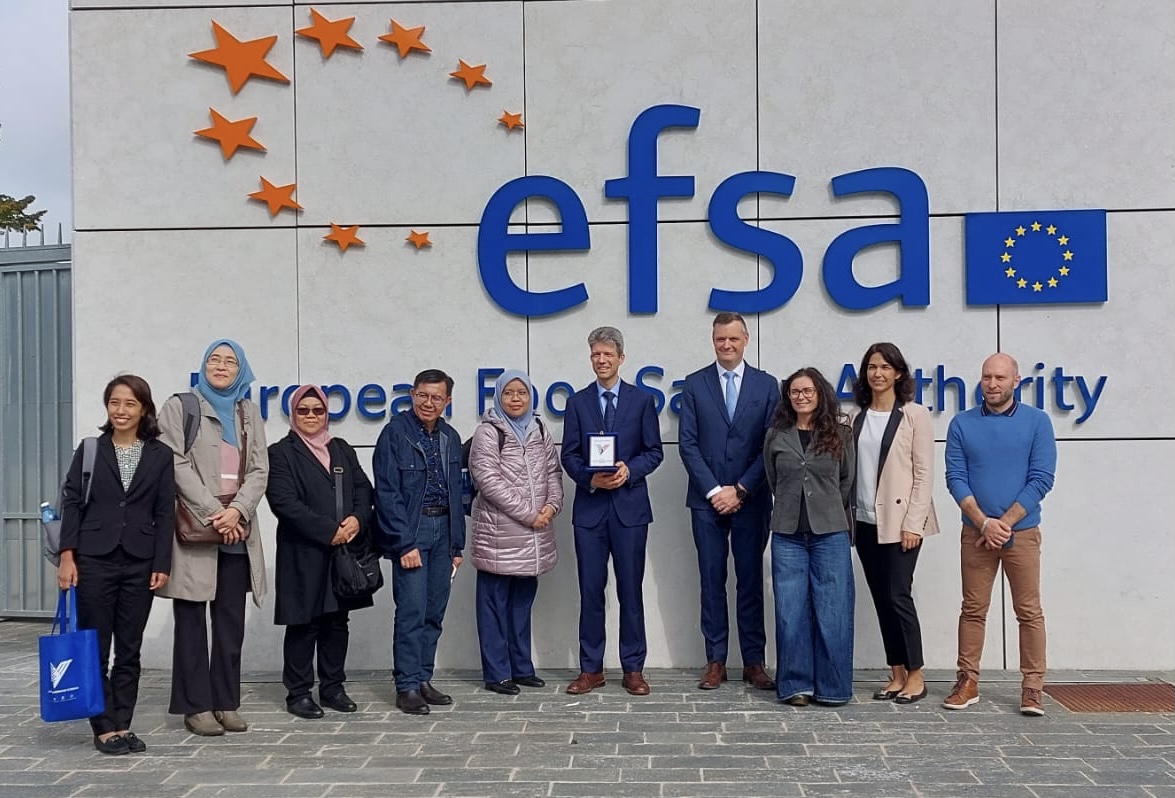
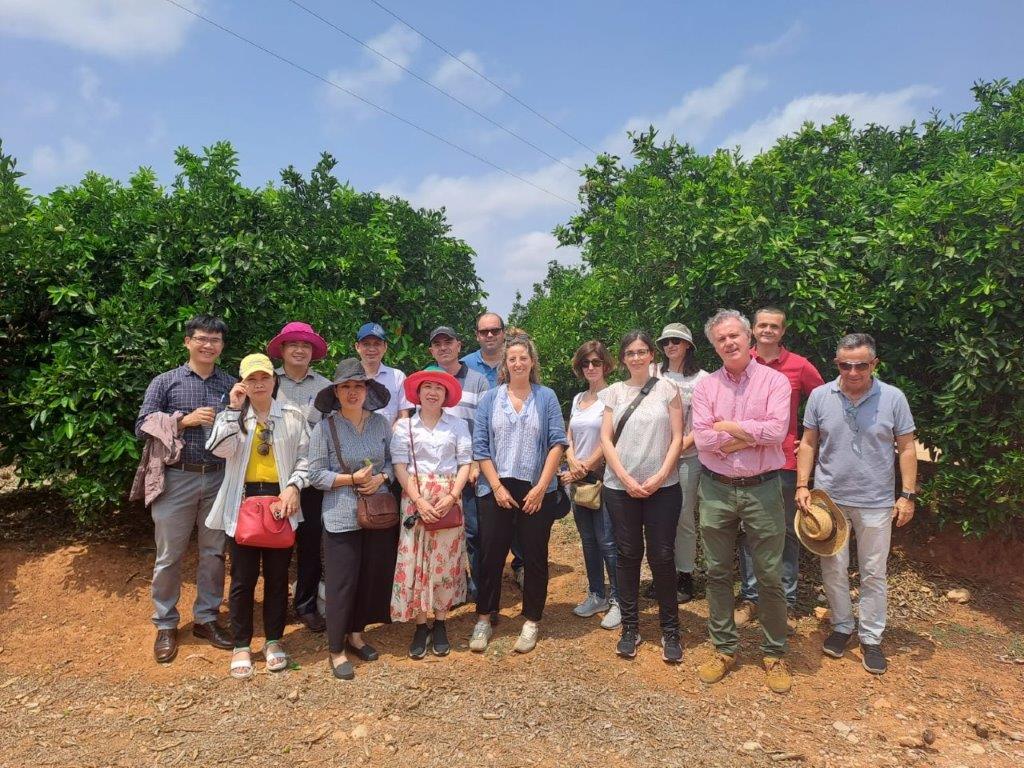

Summary
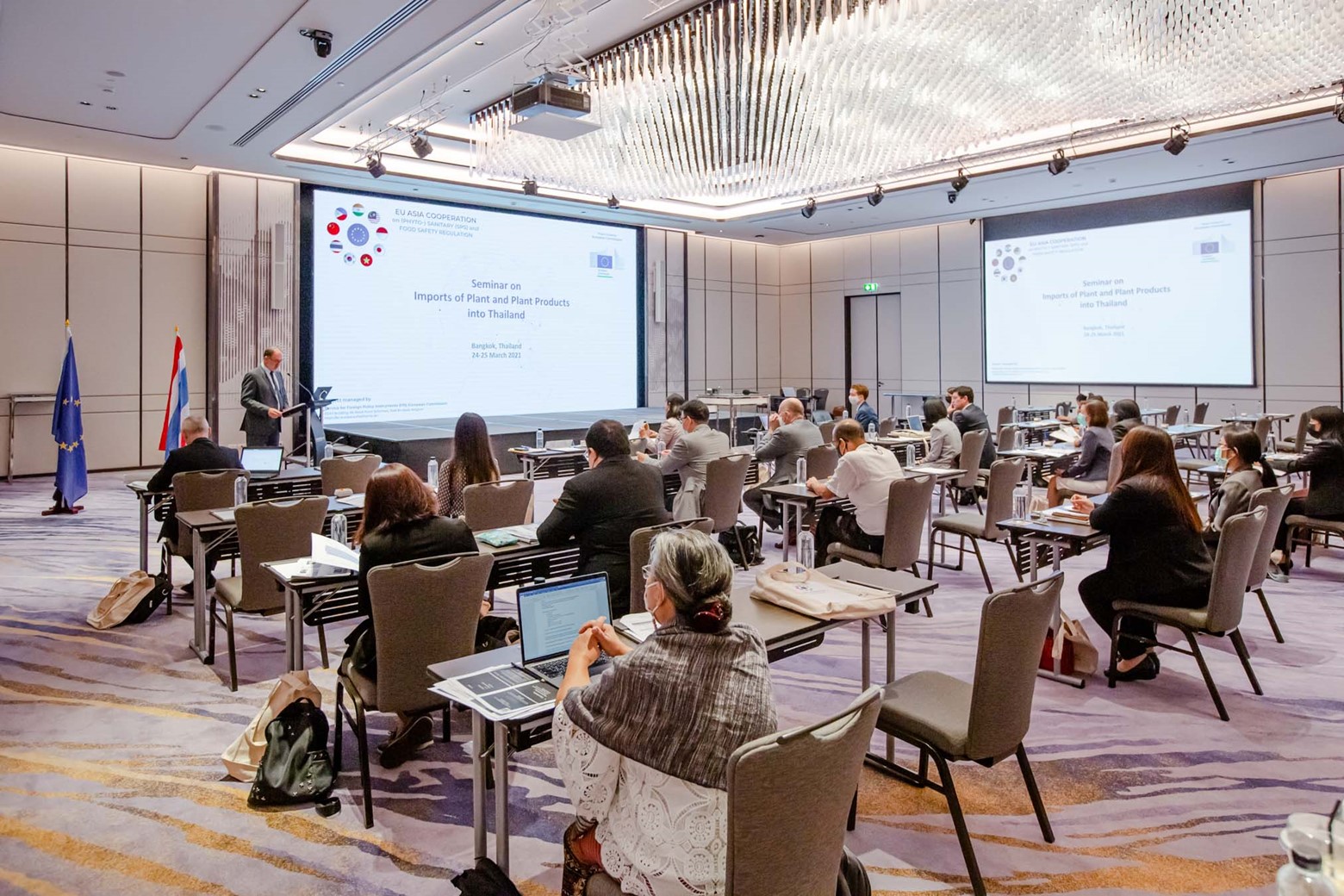
The EU-ASIA Cooperation on SPS project started in October 2019, and despite a delay in some of the activities caused by the global COVID-19 pandemic, the project managed to successfully meet its main objectives eventually. The project eventually finished in October 2023.
The overall objective of the project was to improve conditions for the EU food and drink industry to access the markets of China, India, Indonesia, Japan, Malaysia, Philippines, South Korea, Thailand, and Vietnam. The general objective was to contribute to improve regulatory cooperation on SPS and food safety between competent authorities in the EU Commission, EU Member States, and Asian partner countries and to expand economic opportunities for EU businesses in Asia through this cooperation. The project worked towards removing and avoiding unjustified restrictions to trade that result from sanitary and phytosanitary control measures, and thereby to facilitate the access of EU food and drink products to the respective markets. The project supported the cooperative orientation of the EU's policies and it is fully in-line with the “Trade for All Communication” of the European Commission.
The project consisted of the organisation of 3 types of main activities;
1) organisation of international seminars (2 seminars)
2) organisation of regulatory dialogue visits of Asian officials to the EU (10 regulatory visits)
3) production of ‘applicant guides’ summarising regulatory requirements and administrative procedures applicable to a number of products and countries (17 guides)
Therefore, in summary, the main outcomes delivered during this project were the following;
- 2 international seminars were organised during the course of the project. These two events have gathered a total of 228 participants. These seminars (one on Plant Health, and one on Food Contact Materials) addressed long-standing problems that affect trade for all Member States. The seminars hosted government representatives of the of the food safety and health administrations, at senior and technical level, with representatives of the European Union (EU), the EU Member States, and the EU food and beverage industry. During the seminars, these stakeholders discussed regulatory policies and their potential or existing trade impacts.
- 10 regulatory dialogue visits were organised in the European Union for delegations of officials coming from competent authorities of Asian trading partners to demonstrate the solidity of EU SPS measures in the view of facilitating EU exports towards Thailand (3 visits), Indonesia (2 visits), Malaysia (2 visits), Vietnam (2 visits) and India (1 visit).
- 12 guides for applicants were developed summarising regulatory requirements and administrative procedures applicable to a number of products and countries that are of particular interest for the EU. The guides on the legislative evaluation and comparison of different 3rd countries were intended to help applicants (i.e. EU business operators, primary production enterprises, associations and EU Member State administrators acting in support of their industries) in their efforts to penetrate new markets in Asia. The guides described step by step the application procedures, contact points, formats of submissions, timelines etc. that are relevant for market access of specific products.
One significant challenge was the inability to organize face-to-face events for nearly two years. Despite this, the project team, along with FPI program staff in EU Delegations and Headquarters, worked tirelessly to adapt and overcome these hurdles. The beneficiaries were gradually remobilized in each country, showcasing the team's dedication and resilience.
The project is funded by the European Commision and implemented by AETS consortium

